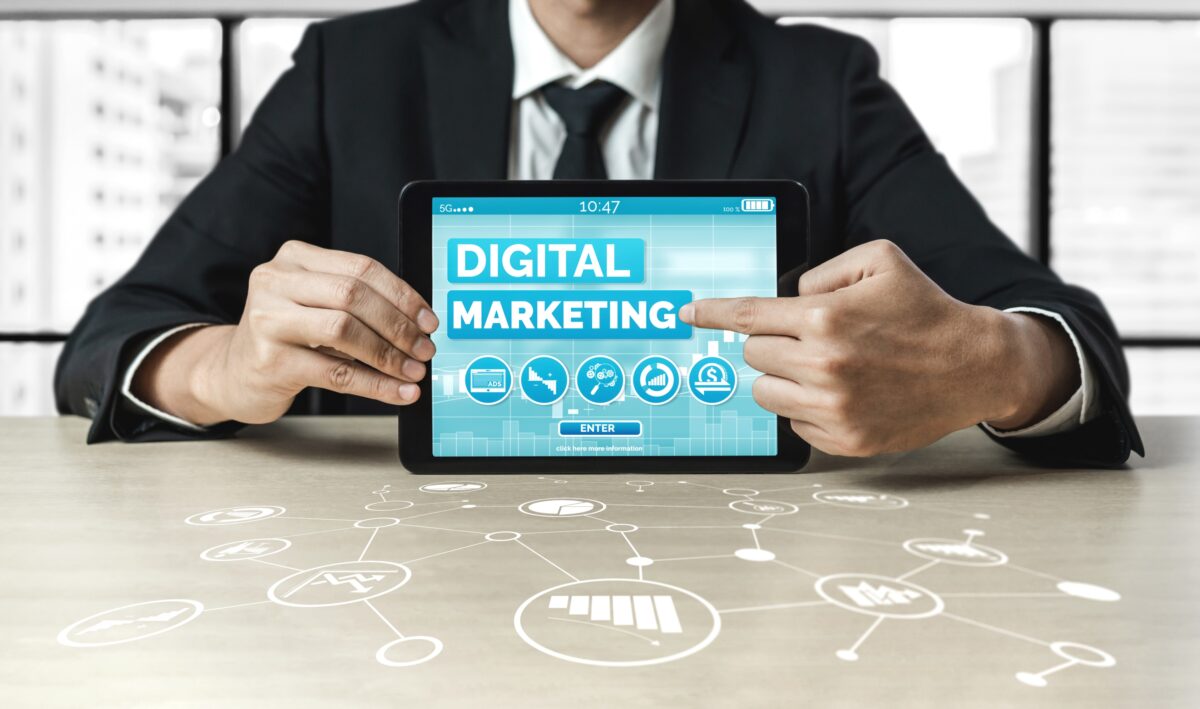Introduction: Embracing the Digital Era
The digital revolution has transformed the way businesses operate and connect with their target audience. In today’s fast-paced world, having an effective digital marketing strategy is essential for any organization looking to thrive in the online landscape. Whether you’re a small startup or an established enterprise, understanding and implementing the right digital marketing services can make all the difference in driving your online success.
Effective Digital Marketing Services: A Comprehensive Overview
In this comprehensive guide, we will explore the key elements of effective digital marketing services. From search engine optimization (SEO) to content marketing, social media, and beyond, we’ll delve into the strategies and techniques that can significantly impact your online presence and brand visibility.
1. SEO: Enhancing Visibility and Rankings
One of the pillars of effective digital marketing services is Search Engine Optimization (SEO). By optimizing your website’s content and structure, you can improve its visibility in search engine results and attract relevant organic traffic. Leveraging LSI keywords, creating high-quality backlinks, and producing valuable content are just a few tactics to elevate your SEO game.
2. Content Marketing: The Power of Engaging Narratives
Engaging content is at the heart of any successful digital marketing campaign. Content marketing involves creating and distributing valuable, informative, and entertaining content that resonates with your target audience. From blog posts to infographics, videos, and e-books, compelling content helps build brand authority, fosters customer trust, and drives conversions.
3. Social Media Marketing: Building a Loyal Community
Social media has revolutionized the way brands interact with their customers. An effective social media marketing strategy involves understanding your audience’s preferences, creating shareable content, and engaging in meaningful conversations. Platforms like Facebook, Twitter, Instagram, and LinkedIn offer unique opportunities to build a loyal community and drive brand loyalty.
4. Pay-Per-Click (PPC) Advertising: Targeted Campaigns for Instant Results
PPC advertising enables businesses to reach their target audience through paid ads on search engines and social media platforms. It provides instant visibility and immediate results. By using well-researched keywords and compelling ad copy, you can attract qualified leads and achieve a high return on investment (ROI).
5. Email Marketing: Nurturing Relationships and Conversions
Despite the rise of various marketing channels, email marketing remains an effective way to nurture customer relationships and drive conversions. With personalized and relevant content, email campaigns can engage users, promote new products, and encourage repeat business.
6. Influencer Marketing: Leveraging Trust and Authority
Influencer marketing involves partnering with popular personalities or industry experts to promote your products or services. By leveraging the influencer’s trust and authority, you can reach a broader audience and build brand credibility.
7. Video Marketing: Captivating Audiences with Visual Stories
Video marketing has become increasingly popular as a way to engage audiences and convey brand messages effectively. With the rise of platforms like YouTube and TikTok, businesses can leverage video content to showcase products, provide tutorials, and share behind-the-scenes glimpses.
8. Mobile Marketing: Tapping into On-the-Go Audiences
With the proliferation of smartphones, mobile marketing has become crucial for businesses targeting on-the-go audiences. Mobile optimization, app marketing, and location-based targeting are some of the strategies to connect with mobile users effectively.
9. Website Design and User Experience (UX): Enhancing Customer Satisfaction
A well-designed website with an intuitive user experience is essential for keeping visitors engaged and encouraging them to take desired actions. Fast loading times, clear navigation, and responsive design are factors that can significantly impact user satisfaction.
10. Analytics and Data-Driven Marketing: Informed Decision Making
Data-driven marketing involves analyzing and interpreting data to make informed marketing decisions. By understanding user behavior, preferences, and pain points, businesses can refine their strategies and optimize their marketing efforts.
11. Local SEO: Targeting Local Customers
For businesses with physical locations, local SEO is vital for attracting nearby customers. Optimizing your website and online profiles for local search can boost foot traffic and lead to higher conversion rates.
12. Chatbots and AI in Marketing: Enhancing Customer Support
Artificial Intelligence (AI) has revolutionized customer support through the use of chatbots. These automated tools can handle customer queries, provide instant responses, and enhance the overall customer experience.
13. Online Reputation Management: Building Trust and Credibility
A positive online reputation is crucial for gaining customer trust and credibility. Managing online reviews, responding to customer feedback, and actively engaging with users can shape a strong and favorable brand image.
14. Webinars and Virtual Events: Connecting in the Digital World
Webinars and virtual events provide opportunities to connect with audiences globally. By hosting webinars, workshops, or virtual conferences, businesses can showcase expertise and generate leads.
15. Social Proof and User-Generated Content: Harnessing Peer Influence
Social proof, such as customer reviews and user-generated content, plays a pivotal role in influencing purchase decisions. Encouraging customers to share their experiences can foster authenticity and drive conversions.
16. Personalization: Tailoring Experiences for Individuals
Personalization involves delivering customized experiences based on user preferences and behavior. From personalized product recommendations to tailored email campaigns, customization can strengthen brand-user relationships.
17. Affiliate Marketing: Collaborating for Mutual Growth
Affiliate marketing allows businesses to collaborate with affiliates or partners who promote their products or services. This symbiotic relationship can expand reach and generate revenue for both parties.
18. Storytelling in Marketing: Evoking Emotions and Connections
Effective storytelling can evoke emotions and create strong connections with audiences. By incorporating narratives into marketing campaigns, brands can forge deeper relationships with customers.
19. Voice Search Optimization: Adapting to Changing User Behavior
With the rise of voice-activated devices, voice search optimization has become essential. By optimizing content for voice queries, businesses can stay relevant and accessible to voice search users.
20. Gamification: Making Marketing Fun and Engaging
Gamification involves incorporating game elements into marketing strategies to engage users and incentivize actions. Contests, quizzes, and rewards are examples of gamification tactics.
21. Social Media Advertising: Expanding Reach and Engagement
Paid social media advertising complements organic efforts and extends brand reach. Platforms like Facebook Ads and Instagram Ads offer powerful targeting options to reach specific audiences.
22. Retargeting and Remarketing: Nurturing Leads
Retargeting and remarketing involve reaching out to users who have previously interacted with your brand. By re-engaging these prospects, businesses can nurture leads and encourage conversions.
23. Diversification: Balancing Multiple Marketing Channels
Diversifying marketing efforts across various channels helps reduce risk and reach diverse audiences. A well-rounded marketing strategy includes a mix of digital marketing services.
24. Crisis Management in Digital Marketing: Handling Challenges
In times of crisis or negative events, businesses must effectively manage their digital marketing strategies. Transparency, empathy, and swift action are essential in maintaining brand reputation.
25. Constant Innovation: Staying Ahead in the Digital Landscape
Digital marketing is ever-evolving, and successful businesses must stay up-to-date with the latest trends and technologies. Embracing innovation ensures a competitive edge in the digital landscape.
FAQs about Effective Digital Marketing Services
- What are the key benefits of digital marketing services? Digital marketing services offer numerous benefits, including increased brand visibility, targeted audience reach, higher lead generation, improved customer engagement, and measurable ROI.
- How long does it take to see results from digital marketing campaigns? The timeline for results can vary depending on the specific strategies and industry. Some tactics, like PPC advertising, can yield immediate results, while SEO efforts may take several months to show significant impact.
- Are digital marketing services cost-effective for small businesses? Yes, digital marketing services can be highly cost-effective for small businesses. Compared to traditional advertising methods, digital marketing allows businesses to reach a larger audience within their budget.
- Is it essential to hire a professional digital marketing agency? While some businesses may attempt to handle digital marketing in-house, hiring a professional agency brings expertise, industry knowledge, and access to advanced tools, resulting in more effective campaigns.
- What role does content quality play in digital marketing? Content quality is paramount in digital marketing. Valuable, informative, and engaging content helps build trust with the audience, boosts SEO efforts, and drives conversions.
- How do social media platforms impact digital marketing strategies? Social media platforms offer unique opportunities for businesses to interact with their audience, build brand identity, and leverage user-generated content to amplify their marketing efforts.
Conclusion: Embrace the Digital Revolution
As the digital landscape continues to evolve, effective digital marketing services remain crucial for businesses seeking online success. By implementing a well-rounded strategy that incorporates SEO, content marketing, social media, and other essential elements, you can maximize your brand’s visibility, engage with your target audience, and drive sustainable growth.
Remember, staying informed about the latest trends and constantly innovating will keep your brand ahead of the competition in this ever-changing digital era.




